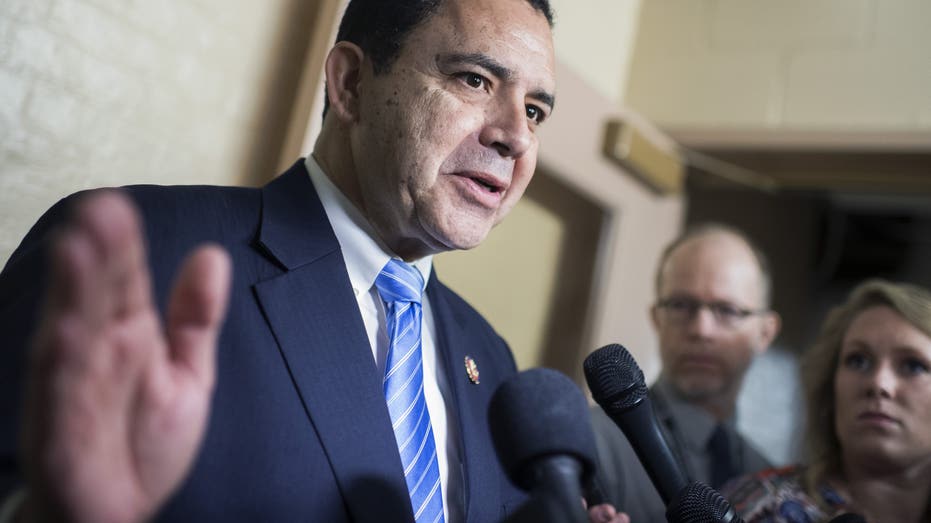In a politically charged environment, one Democrat has openly challenged his own party’s strategic focus on various issues, specifically concerning the case of an MS-13 suspect who was deported from the United States. This controversial incident has sparked widespread debate over immigration policy, public safety, and the efficacy of the Democratic Party’s responses to these pressing matters.
The situation came to light when authorities apprehended a suspect purported to have ties to the notorious MS-13 gang. A significant immigration enforcement action resulted in this individual being deported, igniting discussions among lawmakers about the implications of such actions for public safety and community trust in law enforcement. The fact that this individual was tied to a gang that has been responsible for numerous violent crimes raised alarms among various stakeholders.
In the wake of this development, the Democratic lawmaker, whose identity remains undisclosed for reasons of confidentiality, expressed frustration over what he perceives as the party’s choice of priorities. He criticized the Democrats for allocating resources and attention to issues that might not resonate with their base, particularly in light of incidents that directly impact the safety and well-being of American communities.
The lawmaker pointed out that by focusing on high-profile issues like immigration reform without adequately tackling the related public safety concerns, the party risks alienating voters who are increasingly concerned about crime and security in their neighborhoods. The deportation of the MS-13 suspect has, in his view, illuminated the complexities surrounding immigration policy and its real-world implications.
The lawmaker articulated that the party should not shy away from confronting these hard questions. Instead, Democrats ought to engage in a deeper dialogue about how to balance compassionate immigration policies while ensuring that they protect their constituents from gangs and organized crime. This involves scrutinizing not just the individuals deported, but the larger systemic issues that allow such situations to persist.
As a member of the Democratic Party, he believes there is a responsibility to communicate effectively with the public about the realities of crime associated with gang activities. He noted that ignoring the problem does not make it disappear but creates a vacuum that can be filled with misinformation and fear among constituents.
This situation has led to complex discussions within the Democratic Party about how to best address the intricate web of immigration and public safety. While the party may champion principles of humane treatment for immigrants, the rising crime rates linked to gang activity have become a litmus test for voter sentiment. The overarching question remains: how can Democrats uphold their values while addressing legitimate concerns about public safety?
Critics within the party are advocating for a more nuanced approach, one that can simultaneously support immigrants and strengthen community security. This can involve enhanced community policing efforts, better partnerships between local law enforcement and immigrant advocacy groups, and investing in social programs that tackle the root causes of gang affiliations.
Further complicating matters is the mixed sentiment among the electorate regarding immigration policies. Many voters are sympathetic to the plight of immigrants, yet the specter of violent crime often leads to heightened anxiety and calls for stricter border controls and enforcement measures. The Democratic Party finds itself at a crossroads, striving to maintain its fundamental beliefs while responding to the electorate’s shifting priorities.
The lawmaker emphasized the necessity for dialogue that transcends the binary understanding of immigration and crime. He believes there is a prevailing need for the party to broaden its rhetoric and acknowledge that concerns over crime, especially associated with gangs like MS-13, are valid fears that need to be addressed sincerely.
Additionally, the centralization of conversations around law and order tends to overshadow the voices of those who advocate for more humane treatment of immigrants. Balancing such contrasting viewpoints has become increasingly challenging for Democratic representatives on both state and national levels, as they attempt to navigate the turbulent waters of public opinion.
In response to the growing challenges, some progressive members of the party have suggested adopting proactive measures, such as comprehensive community outreach programs that educate and inform residents about gang prevention initiatives and the resources available to combat them. These programs can provide a platform for strengthening community ties while also ensuring that immigrants feel secure and supported in their neighborhoods.
The deportation of the MS-13 suspect serves as a reminder that immigration policy is not merely a political issue but one that has profound implications for everyday life in American communities. The lawmaker’s call for reevaluation highlights the need for the party to engage with constituents at a grassroots level, fostering a more inclusive environment where concerns over both safety and humanity can coexist.
The pathways the party chooses in response to these challenges will undoubtedly shape its electoral prospects in the coming years. As the 2024 elections loom, the pressure is mounting for Democratic leaders to regain public trust and present a cohesive strategy that resonates with voters across the political spectrum.
Ultimately, the incident has sparked a critical introspection within the Democratic Party regarding its ideological stance on crime and immigration. As discussions continue, it is clear that moving forward requires a collaborative effort to address public safety concerns while also upholding democratic principles regarding the treatment of immigrants.
The questions ahead are challenging but essential: How will the Democratic Party redefine its narrative? Can it create a vision that encompasses both compassion for immigrants and a firm stance on public safety? The answers may determine the party’s trajectory as it navigates the politically charged landscape of the United States in the years ahead.
Amidst these evolving discussions, it is vital to recognize that the conversation surrounding MS-13 and immigration is not simply a political football but a reflection of broader societal anxieties. Addressing these sentiments with care and tact will be crucial as elected officials seek to build a coalition that represents the diverse views and needs of their constituents.
The critical challenge remains: to build a comprehensive narrative that empowers communities while also maintaining law and order as a priority. The path that the Democratic Party chooses could set a precedent not only for its future electoral success but also for how America fundamentally grapples with complex issues of identity, safety, and immigration in a rapidly changing world.
































